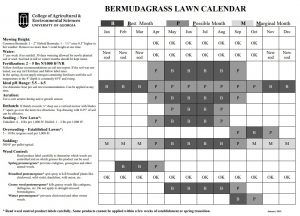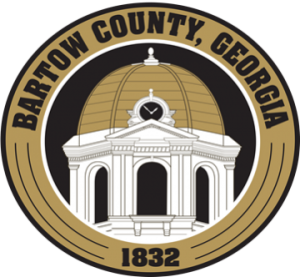 Every year, local county Extension offices receive hundreds of phone calls from homeowners with questions about “when” to do this or that to their lawns. When do I fertilize? When do I plant grass seed? When do I core aerate? When do I apply pre-emergent herbicides? These are just a few examples of the many questions that we get, and more often than not, one good question leads to another.
Every year, local county Extension offices receive hundreds of phone calls from homeowners with questions about “when” to do this or that to their lawns. When do I fertilize? When do I plant grass seed? When do I core aerate? When do I apply pre-emergent herbicides? These are just a few examples of the many questions that we get, and more often than not, one good question leads to another.
To assist homeowners and landscape professionals, the University of Georgia Turf Team has created a one-stop website with current, research based information on lawn care in Georgia at https://turf.caes.uga.edu/publications/pest-control-recomendations.html. One of the most important tools that consumers can use in lawn maintenance is a lawn calendar. This website has a lawn calendar for each turfgrass species that can be grown in Georgia: Bermudagrass, Centipedegrass, Tall Fescue, Zoysiagrass, and St. Augustinegrass. Every homeowner should get a copy of the lawn calendar for their lawn type and post it on a wall inside their garden shed, garage or workbench. If you don’t have access to the internet, stop by the Bartow County Extension office and get a free lawn calendar.
Many lawn problems begin with the fact that the average homeowner doesn’t even know what type of grass they have. As an example, there are many herbicides that are only labeled for certain lawn types. If you spray an herbicide that doesn’t have your lawn grass listed on the label, then there is a good chance that you will kill your lawn. Never assume that just because it is labeled for one lawn grass that it can be used on all lawns. If your lawn isn’t on the label, then don’t use it!
Unfortunately, there is a lot of confusing information on the internet and on various lawn products about “when” is the best time to do anything to your lawn. Often, the confusion begins when you realize that how and when to fertilize your lawn or when to apply herbicides varies depending on where you live. When to do these tasks in Ohio is not going to work in Georgia and vice-versa because lawns grow on a completely different schedule depending on temperature, climate zones, and rainfall patterns. Our UGA Extension lawn calendars are specific to growing lawns in Georgia based on current research in Georgia.
It becomes even more confusing when you consider that every lawn type has a unique maintenance schedule. For example, cool-season grasses such as Fescue should only be fertilized in the spring and fall. On the other hand, warm-season grasses that go dormant, such as Bermudagrass, should only be fertilized after spring green-up and throughout the summer. Bermudagrass should never be fertilized in the winter since the fertilizer will not be taken up by the roots while dormant, and to make things worse, you basically end up feeding your winter weeds! Our lawn calendars answer all the common questions about when, how much, and how often to fertilize water, aerate, seed, mow, and treat weeds for your particular lawn type.
Most insects, diseases, and weeds that affect lawns can be minimized or avoided just by simply providing the proper maintenance at the right time. A thick, healthy turfgrass can out-compete most weed problems and can better tolerate insects, diseases, and drought stress. An added benefit to managing your grass properly is that you won’t need to use as many pesticides as a result of having fewer pest issues through proper maintenance. Managing your grass properly begins with sticking to a lawn calendar made for Georgia and not watching what your neighbors are doing. More than likely, your neighbors are transplants from another state and are doing a lot of things wrong anyway. If you really want to help the environment, be a good neighbor and print a lawn calendar for your friends and neighbors so they can keep a copy in their garden sheds too.
Paul Pugliese is the Extension Coordinator and Agriculture & Natural Resources Agent for Bartow County Cooperative Extension, a partnership of The University of Georgia, The U.S. Department of Agriculture, and Bartow County. (770) 387-5142. For more information and free farm, lawn, or garden publications, visit our local website at www.caes.uga.edu/extension/bartow .
